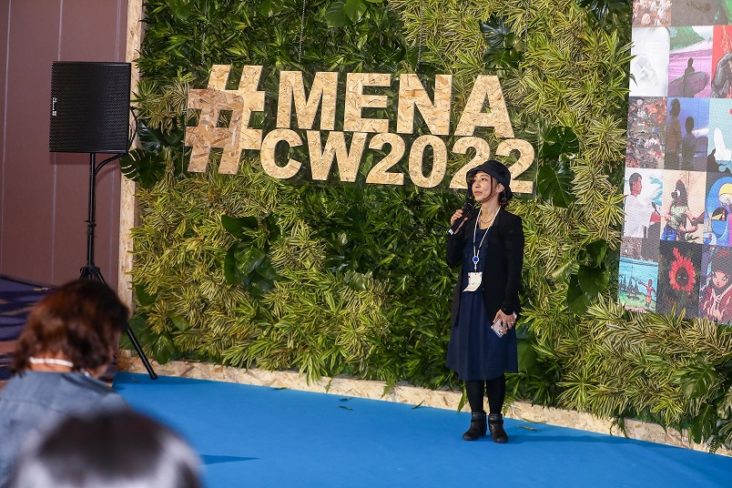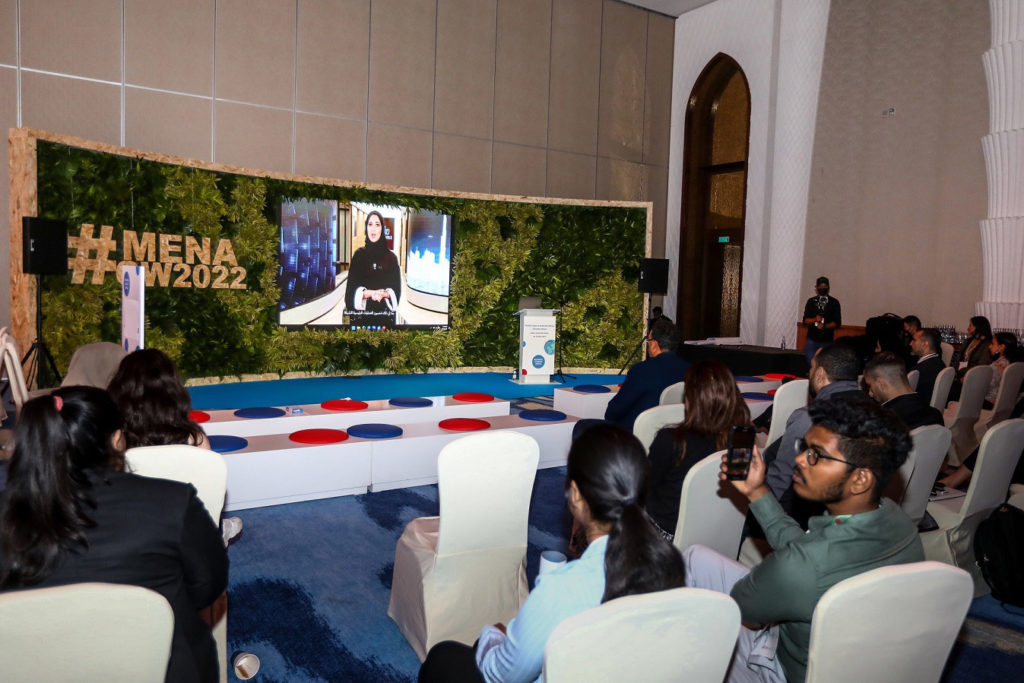22 Panel Discussions On Final Day Of MENA Climate Week 2022

The fourth and final day of the first MENA Climate Week 2022, which was hosted by Dubai for the first time in the region, had 22 panel sessions on the side lines of the event’s agenda, with specialists from government agencies and private sectors from all over the world.
MENA Climate Week Partners presented a series of panel sessions on various topics, the most important of which were: The role of youth in achieving aninclusive and just energy transition in the Middle East and North Africa; the latest developments in carbon markets in the region; integrated approaches for climate-resilient development; scaling up climate risk management and innovative financing for adaptation,technical options and constructive partnerships to achieve a sustainable and just energy transition, and capacity building to enhance transparency. The Mohammed Bin Rashid School of Government and HSBC Bank Middle East also presented a joint session on ‘Policy and finance for a better recovery from COVID-19 in the Middle East.’
The United Nations Framework Convention on Climate Change (UNFCCC) session focused on the Global Forum of the Regional Cooperation Center (RCC). The Paris Committee on capacity-building session highlighted the role of youth and their capacities in enhancing resilience for Nationally Determined Contribution (NDC) implementation and national development plans. The King Abdullah Petroleum Studies and Research Center (KAPSARC) session discussed supporting net-zero pathways in the MENA Region: net-zero Modelling for Saudi Arabia and the Circular Carbon Economic Index.
The joint session presented by the Alliance of NGOs and CSOs of South-South Cooperation (ANCSSC) – United Cities and Local Governments Africa (UCLG Africa) shed light on local government and civil society working towards an integrated approach to building resilience and inclusion by accelerating adaptation.
The World Green Building Council session tackled building resilience through sustainable reconstruction and urban regeneration. Meanwhile, the Climate Action Network Arab World session focused on building power towards loss and damage finance.
The UN Framework Convention on Climate Change (UNFCCC) Secretariat, withthe International Labor Organization (ILO), covered the prospects for climate policy and energy transformation in the Middle East and North Africa. The session explored the green transformation of the region’s fossil fuel-dependent economies and the government and private sector’s roles in promoting new industries and businesses.
The UNDP Regional Bureau for Arab States, with the GEF Small Grants Programme, discussed the environmental programmes provided by global institutions to support young people to reduce the impact of climate change in the region.
The German Agency for International Cooperation (GIZ) presented an overview of the Arab Future Energy Index report,scenarios for long-term energy strategies, and their economic feasibility for industry in the Middle East and North Africa.
MENA Climate Week was held at Atlantis, The Palm in Dubai, from 28 to 31 March 2022. The event is hosted by the UAE Government, represented by the Ministry of Climate Change and Environment (MOCCAE), WGEO, and DEWA, in collaboration with the UNFCCC, the United Nations Development Programme (UNDP), the United Nations Environment Programme (UNEP), and the World Bank Group. The event is supported by regional partners, including the International Renewable Energy Agency (IRENA), the League of Arab States Secretariat, the United Nations Economic and Social Commission for West Asia (ESCWA), and the Islamic Development Bank (IsDB). Climate Week had a full-fledged agenda that included a roundtable of ministers, high-level speakers, and leading figures.




